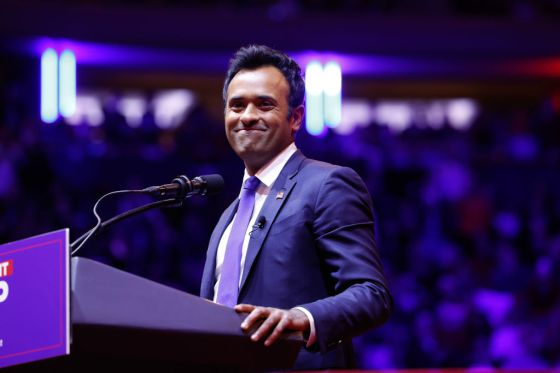Two weeks following Donald Trump’s second election victory, the former president is rapidly appointing individuals for key positions in his anticipated second administration. Among his controversial picks are Elon Musk, the world’s richest person, and Vivek Ramaswamy, a notable figure in the Republican primaries for 2024. Their appointments to head the new “Department of Government Efficiency” (DOGE) have raised eyebrows, not least because of the irony in creating a department aimed at reducing bureaucracy, only to share leadership between two powerful figures known for their business acumen. Trump’s choice of Musk and Ramaswamy aligns with a broader agenda to streamline the federal government, catering to a post-liberty ideology that seeks to diminish the overall expansiveness of government operations. However, the structural form of DOGE and its effectiveness remain unclear, setting the stage for potential internal conflict within Trump’s faction of the GOP.
Ramaswamy’s designation as co-head of DOGE is particularly puzzling considering his recent pivot to championing Trump’s America First narrative, albeit infused with a distinctive libertarian twist. At the National Conservatism Conference, he defined this approach as “national libertarianism,” which seeks to dismantle the so-called “nanny state” across various domains, claiming to champion a form of governance stripped of unnecessary entitlements and bureaucracy. While Ramaswamy pushes for radical cuts to the federal workforce—suggesting a staggering 75% reduction in bureaucratic jobs—his vision appears deceptively simple. Many within the broader MAGA movement might not support such severe restrictions, as the bureaucratic structure plays a vital role in the complexities of governing a large democracy.
The ideological landscape surrounding Ramaswamy is fraught with contradictions. As he tries to align himself with influential MAGA thinkers, he faces an uphill battle against a faction that fundamentally rejects libertarian economics, seeing them as a cause of societal decay. The emerging reactionaries within the Republican party favor a vision centered on ethnonationalism and significantly curtailing immigration, viewing traditional libertarian ideals as antithetical to their goals. Figures like Gladden Pappin exemplify this shift, advocating for a conservative strategy that embraces state power to achieve predetermined objectives, potentially sidelining the classical liberal principles that Ramaswamy espouses.
Ramaswamy’s ideology appears increasingly disconnected from the vocal elements of the New Right, whose rejection of libertarianism and recent alignment with authoritarianism signal a departure from traditional free-market thinking. This coalition of thought leaders—spanning Catholic intellectuals and other nationalists—likely finds Ramaswamy’s platform too lenient and potentially inconsistent with their aggressive agenda. As Ramaswamy persists in attempting to present under the broad MAGA umbrella, his perspectives may be too free-market focused for an emerging movement that favors a more interventionist state role.
While Ramaswamy may have some grassroots support among Republican voters who resonate with Trump’s brash style and anti-left sentiment, the broader ideological currents within Trumpism lean toward a postliberal nationalism that is at odds with libertarian leanings. Many everyday GOP voters continue to express skepticism toward government expansion but largely lack the ideological framework to support the radical overhaul that Ramaswamy proposes. . The tension between the grassroots and elite visions for the future of the GOP complicates Ramaswamy’s position, suggesting a potential misalignment with the dominant narratives shaping the party’s future direction.
Moving forward into a second Trump term, the conflicting visions and allegiances between the techno-libertarian figures allied with Musk and Ramaswamy, and the staunch postliberal nationalists could lead to significant intra-party skirmishes over policy direction. As both factions vie for influence, the clear ideological differences on issues such as the role of government in society, immigration, and market regulation will shape the GOP’s platform in problematic ways. Despite their collaboration for now, it seems inevitable that the coding of Trump’s administration will increasingly expose and contrast the divergent interests represented by his key appointees, creating a complex tapestry of ideological conflict that could redefine the Trump era in American politics.

